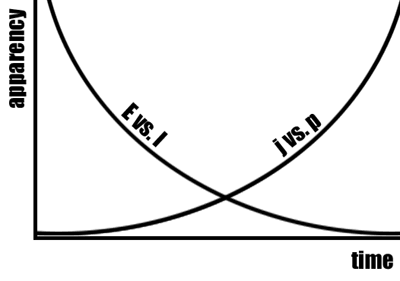I found this socionics article and wondering how it applies to MBTI as well in regards to being able to determine J/P.
I am good at getting myslf into P messes when I start to get stressed. Do not put me into a J position for extended periods unless you are willing to work with me. I will actually really appreciate it if you take the time to work with me in these J areas and maintain a positive attitude when my P starts to rear its head. I really do try to get past my P traits, but I honestly suck at them and need constant reminders and help because I recognize this in me as an area I need work at.
If you normally decide on someone's type by going - E or I?, S or N?, F or T?, J or P?, then you MUST know this: P types have a misleading habit of showing off their J capabilities to new people. I wonder if this is something P types do without realising they are doing it or they really have a "sinister" plan in mind. In any case there is always a show off period, which fades away gradually as P types become more familiar with you. Of course, lots of what's been said depends on a person, but this pattern keeps popping up persistently.
At the beginning P types do what they say they would and keep their promises and come on time and show that they can be trusted, etc. They do it in incredibly believable way, if you don't know that you've got a P type in front of you, you would never question their trustworthiness.
Then time passes and they slip. First they slip just a bit, tiny little bit just to check how you would react to that. There is always an excuse, ALWAYS! Then they do it a bit more, and a bit more, and gradually as they feel they know you better, they let it go and before you know it all turns into one huge P mess. Endless excuses, poor time management, broken promises, unfulfilled contracts, cancelled jobs - you name it! This is the time when you really should start deciding on J/P bit, unlike the E/I bit that is more obvious at the first contact. So here is the rule:
E/I - the first preference in the type acronym - should be decided upon first, while the impression from the first contact is still fresh.
J/P - the last preference in the type acronym - should be decided upon last, after the first "run into" impression has settled and you begin to see the real McCoy.

I am good at getting myslf into P messes when I start to get stressed. Do not put me into a J position for extended periods unless you are willing to work with me. I will actually really appreciate it if you take the time to work with me in these J areas and maintain a positive attitude when my P starts to rear its head. I really do try to get past my P traits, but I honestly suck at them and need constant reminders and help because I recognize this in me as an area I need work at.
